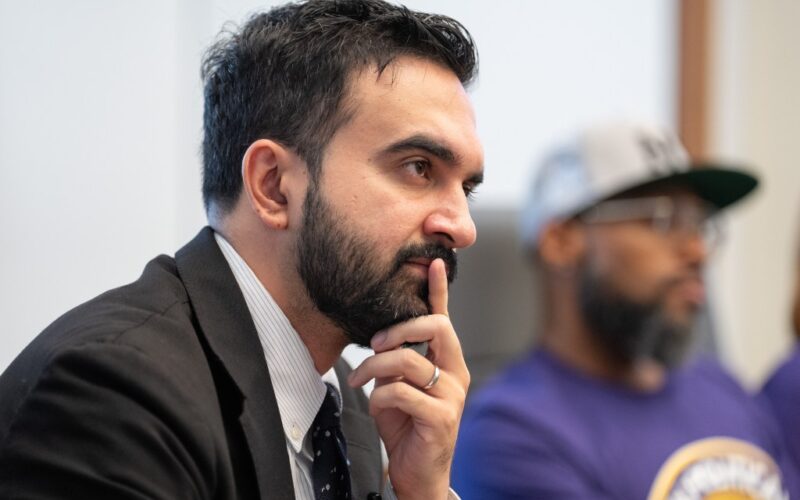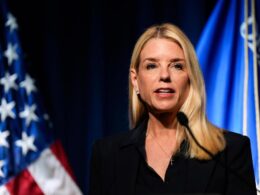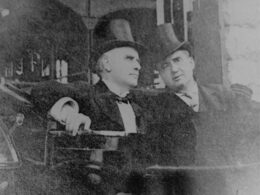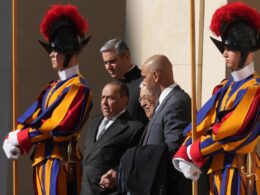The facts are stark…and well known.
Zohran Mamdani, the frontrunner in New York City’s mayoral race, has vacillated in calling for the disarmament of Hamas — a U.S.-designated terrorist organization whose charter demands the destruction of Israel and the murder of Jews worldwide. Its leaders have openly vowed to repeat the barbaric atrocities of Oct. 7.
Mamdani has wavered in condemning the call for a “global intifada,” a movement that threatens Jews everywhere, including New York City where more than one million Jews live (the largest population of Jews in any city), and including the half of world Jewry living in Israel. He has also endorsed the BDS movement, whose economic boycotts could imperil Israel’s very survival.
What Mamdani fails to understand is that these positions are not merely disagreements with Israeli policy. They strike at the very foundations of Jewish faith and identity — and therefore, even if unintended, are antisemitic in nature.
Unlike Christianity, Judaism is not only a religion but also a peoplehood — a nation inextricably bound to a land. When God chooses Abraham as the first Jew, He tells him in Genesis: “Go to the land that I will show you.” As the legendary 20th century Rabbi Avraham Yitzchak Kook wrote, “The Land of Israel is not external to Judaism but built into its very essence.” In other words, while America is my home, Israel is my homeland.
This teaching — the centrality of Israel to Judaism — has been shared publicly and privately with Mamdani, but he just doesn’t get it. As Natan Sharansky — the heroic former Prisoner of Zion — has explained, modern antisemitism often reveals itself through the three D’s: delegitimization, demonization, and double standards. By denying Israel’s identity as the Jewish state, labeling it “racist” and portraying its actions against Hamas as “genocidal” rather than acts of self-defense in a just war, Mamdani clearly violates the first two.
Indeed, by any reasonable standard of moral consistency, Mamdani’s rhetoric and positions cross the line. He denounces Israel’s conduct while remaining virtually silent in the face of genuine mass slaughters — in Nigeria, Sudan, China, Yemen, and elsewhere. That selective outrage is itself a double standard — the third pillar of modern antisemitism.
As a rabbi/activist over the past five decades, I have actively protested when I thought a candidate for political office posed a danger to the Jewish community. Most recently I did so when opposing Jamaal Bowman’s run for Congress.
Years earlier I did the same when I maneuvered myself right behind David Duke with a sign that read “Duke: Nazi of the 90s” as he announced his campaign for the presidency at Washington’s National Press Club. So, too, when I and my group followed Pat Buchanan — a rabid antisemite — around the country during his bids for the presidency in the 1990s. And I strongly opposed former New York Mayor David Dinkins’ bid for reelection in 1993 stating his malfeasance during the Crown Heights pogrom in 1991, made him unworthy to lead the city.
In each of these cases — especially Dinkins’ — Jewish leaders urged me to back down. “Dinkins has a temper,” they warned. “If he wins, he’ll retaliate against the Jewish community.” I’m hearing a similar argument from many Jews today: beware speaking out against Mamdani, they implore, for he’ll make life difficult for Jews if he wins.
I said then, as I say now, that the opposite is the case. Raising a voice against antisemitism will not render our community more vulnerable, but more protected. Today, rabbis across the religious and political spectrum are calling upon their constituents not to cower in fear, but to raise their voices in Jewish conscience — and oppose Mamdani.
This call to conscience is not only for Jews — it is for all New Yorkers. We are a diverse city with communities whose interests often diverge, and that diversity should be celebrated. But when the very safety and well-being of one community is endangered, all communities are at risk. At such moments, every New Yorker has a moral duty to stand up, speak truth to power, and vote accordingly.
All this in the spirit of the great sage Hillel, who I believe spoke to all communities when he said: “If I am not for myself, who will be for me? But if I am only for myself, what am I? And if not now, when?”
Weiss is founding rabbi of the Hebrew Institute of Riverdale in the Bronx and a longtime activist for Jewish causes and human rights.








